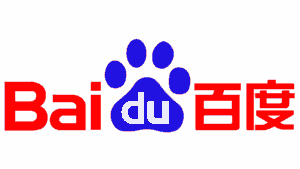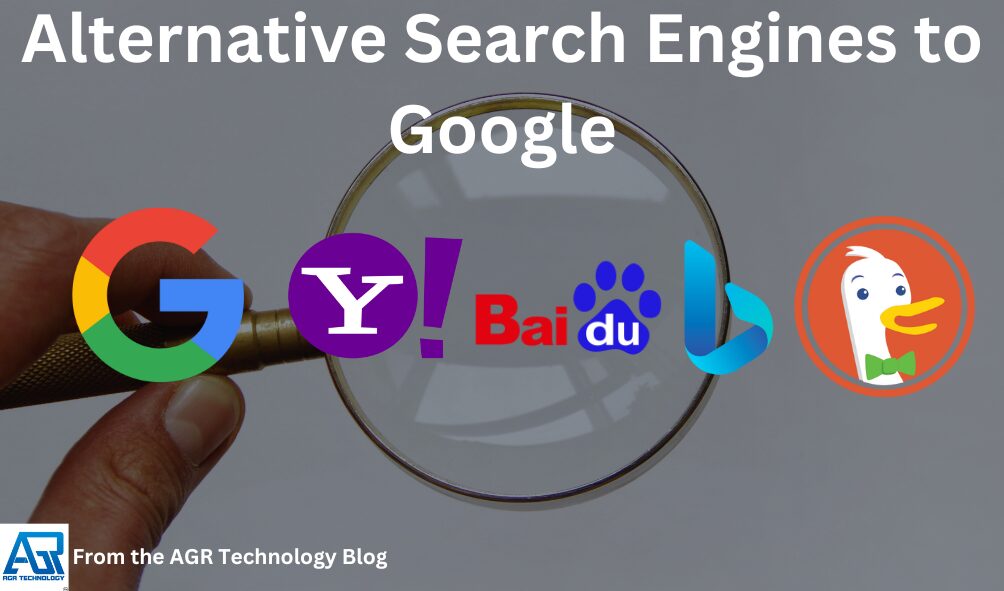When we think of searching the web, Google often springs to mind first. But did you know there are several other search engines that offer unique features and benefits? Whether you’re concerned about privacy, looking for specialized search results, or just curious about other options, exploring alternatives can open up a whole new world of search possibilities.
Key Takeaways
- Enhanced Privacy Options: Alternative search engines like DuckDuckGo and StartPage prioritize user privacy by not tracking search behavior or storing personal information, ensuring confidential and ad-free search experiences.
- AI-Driven and Specialized Results: AI-enhanced engines like Bing and You.com offer precise and contextual search results, while specialized engines like WolframAlpha provide factual answers suitable for academic purposes.
- Support for Social and Environmental Causes: Search engines such as Ecosia and OceanHero channel their ad revenue into environmental and social causes, like tree planting and ocean cleanup, allowing users to positively impact the world through everyday searches.
- Global and Regional Alternatives: Various search engines dominate different regions; Yandex leads in Russia, Baidu in China, and Naver in South Korea, catering to specific local needs and preferences.
- Diverse Search Results: Engines like Bing and You.com avoid prioritizing ads, offering broader and more varied search results sourced through unique algorithms, providing a fresh perspective compared to Google.
- Historical Impact of Defunct Engines: Early search engines like AltaVista and WebCrawler, despite their eventual closure, laid the groundwork for modern search technologies and contributed significantly to the evolution of internet search capabilities.
Types of Alternative Search Engines

Exploring alternative search engines opens new possibilities for enhanced privacy, AI-driven results, and sustainable choices. Here are various types:
Privacy-Focused
Some search engines prioritize user privacy. DuckDuckGo, for instance, doesn’t track user behavior or store personal information. StartPage leverages Google search results but removes trackers and logs. Both platforms offer an ad-free experience, ensuring user data remains confidential.
AI-Enhanced
AI-enhanced search engines provide more precise and contextual results. Bing uses AI to deliver personalized search experiences and relevant image searches. Another example is You.com’s interactive AI capabilities, which use natural language processing to understand complex queries efficiently. This approach improves result accuracy and relevance some examples also include Perplexity AI and ChatGPT.
Sustainable and Charitable
Sustainable search engines support eco-friendly initiatives. Ecosia uses ad revenue to plant trees worldwide, with over 140 million trees planted by 2023. Similarly, OceanHero focuses on removing ocean-bound plastic. These engines not only provide search capabilities but also contribute to environmental and charitable causes.
Defunct Search Engines
Several search engines have become defunct over time. AltaVista was once a leading search engine but shut down in 2013 due to declining usage. Another example, WebCrawler, despite its initial success in the ’90s, shifted focus and now serves a different function. These engines paved the way for modern search technologies yet couldn’t sustain their operations.
Features of Non-Google Search Engines
Non-Google search engines offer unique features that cater to various user needs. These features include advanced search capabilities, revenue sharing models, and specialized information access.
Advanced Search Capabilities
Many non-Google search engines excel in providing advanced search capabilities. Bing, for example, integrates AI to enhance search relevance, offering precise answers instead of just links. DuckDuckGo prioritizes user privacy by not tracking search history, ensuring unbiased results. StartPage uses Google’s search algorithms while stripping away user tracking, blending advanced search with privacy. Ecosia focuses on environmental sustainability by using its revenue to plant trees, integrating an excellent search experience with eco-friendly benefits.
Revenue Sharing Models
Several search engines support revenue sharing models. Brave Search, integrated into Brave Browser, allocates a portion of its ad revenue to users through tokens, rewarding them for their attention. GoodSearch donates a percentage of its advertising revenue to charities specified by users, combining everyday searches with philanthropy. Ecosia invests its profits into reforestation projects, making each search a contribution to the environment. These models highlight how search engines can blend profitability with social impact.
Specialized Information Access
Non-Google search engines often offer specialized access to information. WolframAlpha focuses on computing answers to factual queries, ideal for academic purposes and data analysis. You.com provides tailored search results through AI, adapting to user preferences for a more personalized experience. Qwant, a privacy-oriented search engine, has a strong focus on European content and regulations, offering localized results without compromising user privacy. These engines strengthen their niche by catering to specific information needs.
Defunct Search Engines
Several pioneering search engines laid the groundwork for today’s advanced technologies. AltaVista, once a leading search engine in the 1990s, provided users with powerful search capabilities but was eventually shut down in 2013. WebCrawler, one of the first search engines to index the entire web, later became obsolete due to competition and changing technologies. Infoseek, popular in the mid-90s, offered a user-friendly interface yet couldn’t keep up with evolving internet dynamics and ceased operations. Despite their closure, these engines significantly contributed to the development of modern search technologies.
Global Reach of Alternative Search Engines
Various alternative search engines enjoy global reach, proving that Google isn’t the only player in the search industry. These engines cater to specific local needs, privacy concerns, and diverse user preferences.
Dominant Search Engines in Different Regions
Several search engines dominate in their respective regions. For instance:
Yandex

Yandex is a popular search engine founded in Russia back in 1997 and is still a very large search engine globally popular in some European countries but mostly has a large userbase in Russia and over former Soviet countries such as Belarus, Uzbekistan, Kyrgyzstan and Kazakhstan.
Like Google Yandex has also expanded out into other verticals which include maps, translation, taxi rides, online news, cloud computing and much more.
Baidu

Many consider Baidu the go-to search engine in China, handling over 70% of the country’s search queries. This local preference stems from its language proficiency and regulatory compliance. Baidu is also involved in many different verticals like online maps, video, translation, AI and Cyber security to name a few.
Naver

In South Korea, Naver exceeds Google in usage. It offers specialized search results for Korean content, making it more relevant for local users and blends a search engine as well as web portal for other information like news, weather and games.
Seznam

In the Czech Republic, Seznam maintains a strong market share, focusing on local services, news, and context that resonate with Czech users.
Dogpile

Dogpile is an old search engine that is still running and is whats referred to as a meta search engine which is a search engine that aggregates its search results from multiple search engines on the internet. Dogpile commenced operations in November 1996. Aaron Flin built and developed the site after being unhappy with the variable results of existing indexes and deciding to have Dogpile query numerous indexes for the best search results. It initially included online searches from Yahoo! (directory), Lycos (inc. A2Z directory), Excite (inc. Excite Guide directory), WebCrawler, Infoseek, AltaVista, HotBot, WhatUseek (directory), and World Wide online Worm. It was inevitably compared to MetaCrawler, a previous multi-threaded search engine; however, Dogpile was more complex, and it could also search Usenet (via sites such as DejaNews) and FTP.
Qihoo 360 Search

Qihoo 360 search is another search engine popular in China and is owned by anti-virus company Qihoo which is involved in other products and services with its main rival been Baidu.
You.com

You.com, an AI assistant that started out as a search engine with a personalization focus, was launched in 2020 by Richard Socher and Bryan McCann. Since then, it has changed to put chat-first features first. The first search engine to combine a consumer-facing Large Language Model (LLM) with real-time internet access for current results with citations was You.com in December 2022. It debuted multimodal AI chat features in February 2023, offering customers a variety of responses, including visual components like financial charts. Time recognized Socher as one of the “TIME100 AI” in 2023, a list of significant figures in the field. By offering speedy responses, greater efficiency, better information, and improved privacy, You.com seeks to improve user productivity and information access.
Yep.com

Yep.com is a search engine product launched by a company called Ahrefs which makes search marketing and data analysis software, using their crawled content and extensive data they released this product and aim to offer a creator friendly search engine that shares revenue with publishers who produce content such as bloggers and video creators to further enrich the search experience.
The unique aspect of this search engine is that it is entirely self sufficient for data making up its index and doesn’t use any data from Google or Bing to supplement its results.
Rising Popularity in Emerging Markets
In emerging markets, some lesser-known search engines are increasing their presence:
- Ecosia: Ecosia, known for its eco-friendly mission, has gained traction in countries focusing on sustainability
- Qwant: French search engine Qwant promotes privacy and has seen growing use across various European countries where privacy concerns are paramount
- Yahoo Japan: Whereas Yahoo has lost a global foothold, it still enjoys significant market share in Japan, primarily due to its extensive ecosystem of services
Unique Features Driving Global Adoption
These alternative search engines have unique features that cater to global demands:
- Privacy Focus: DuckDuckGo’s privacy emphasis attracts users worldwide who value online anonymity
- AI Integration: Bing leverages AI for more relevant results, providing a robust alternative to Google
- Social Responsibility: OceanHero donates its revenue to ocean cleanup projects, appealing to the environmentally conscious
- AltaVista: AltaVista, launched in 1995, was an early pioneer in search technology. It introduced multi-language support and streamlined access to vast web pages but shut down in 2013.
- WebCrawler: WebCrawler, established in 1994, initially offered enhanced web navigation by indexing entire pages.
Benefits of Using Alternative Search Engines
Alternative search engines offer several distinct advantages. Three key benefits stand out: enhanced privacy, diverse search results, and support for social causes.
Enhanced Privacy
Many alternative search engines prioritize user privacy. For instance, DuckDuckGo and StartPage don’t track search history or personal information. These engines often use encryption to protect data from third-party access, ensuring user anonymity.
Diverse Search Results
Alternative search engines often provide more varied results. Unlike Google, which might prioritize ads, engines like Bing and You.com focus on delivering a broader range of information. These engines leverage unique algorithms and data sources, offering users a different search experience.
Support for Social Causes
Some alternative search engines contribute to social causes. Engines like Ecosia use their ad revenue to plant trees, while OceanHero helps remove plastic from the oceans. Users can make a positive impact simply by choosing these engines for their searches.
Defunct Search Engines
Several search engines that once dominated the market have now shut down. AltaVista, launched in 1995, was a popular choice before being acquired by Yahoo and eventually discontinued in 2013. WebCrawler, another early search engine from 1994, lost prominence after being acquired multiple times. Despite their closure, these engines made significant contributions to search technology.
Conclusion
Exploring alternative search engines can significantly enhance your online experience. Whether you’re prioritizing privacy, seeking diverse search results, or wanting to support social causes, there’s an option out there for you. Each search engine offers unique features that cater to different needs and preferences. By stepping away from the Google-centric mindset, you open up a world of possibilities that can better align with your values and requirements. So why not give one of these alternatives a try? You might find that it fits your needs perfectly.
Other content you may like:
Search Engine Optimisation Services (SEO)
How to remove adware and spyware from your computer
Best app to buy bitcoin in australia
Top 10 podcast hosting sites & applications
Top SMB loan platforms to consider for Australians
Frequently Asked Questions
Why should I consider using alternative search engines?
Alternative search engines offer enhanced privacy, diverse search results, and support for social causes. They often don’t track users, provide varied perspectives in search results, and contribute to initiatives like tree-planting.
What are some popular privacy-focused search engines?
DuckDuckGo and StartPage are popular for their commitment to user privacy. They don’t track user searches or store personal information, making them excellent choices for privacy-conscious users.
Can alternative search engines improve search result diversity?
Yes, engines like Bing and You.com can provide more diverse search results compared to Google. They present a broader range of sources, which can lead to a richer information experience.
Which search engines support social causes?
Ecosia and OceanHero are notable for their contributions to social causes. Ecosia uses its ad revenue to plant trees, while OceanHero helps remove plastic from the ocean with each search.
Are there any historical search engines that are now defunct?
Yes, search engines like AltaVista and WebCrawler were pioneers in early search technology but have since been discontinued. They hold historical significance despite their closures.
Which alternative search engines are popular globally?
In different regions, engines like Yandex in Russia, Baidu in China, Naver in South Korea, and Seznam in the Czech Republic dominate. These engines cater to specific regional needs and preferences.
Are there rising search engines in emerging markets?
Yes, engines like Ecosia and Qwant are gaining popularity in emerging markets. They attract users with features like privacy focus and social responsibility.
Do alternative search engines integrate AI features?
Yes, some alternative search engines, like You.com, are integrating AI to enhance user experience and provide more relevant search results.
Source(s) cited:
(2004). Dogpile [Online]. Wikipedia. Available at: https://en.wikipedia.org/wiki/Dogpile (Accessed: 6 July 2024).
upload.wikimedia.org/wikipedia/en/f/f5/Qihoo_360_logo.png. Accessed 6 July 2024.
(2022). You.com [Online]. Wikipedia. Available at: https://en.wikipedia.org/wiki/You.com (Accessed: 22 August 2024).
Wiggers, Kyle. “Ahrefs invests $60M in building creator-friendly search engine” 3 June 2022, techcrunch.com/2022/06/03/yep-search-engine/. Accessed 23 Aug. 2024.

Alessio Rigoli is the founder of AGR Technology and got his start working in the IT space originally in Education and then in the private sector helping businesses in various industries. Alessio maintains the blog and is interested in a number of different topics emerging and current such as Digital marketing, Software development, Cryptocurrency/Blockchain, Cyber security, Linux and more.
Alessio Rigoli, AGR Technology
![logo-new-23[1] logo-new-23[1]](https://agrtech.com.au/wp-content/uploads/elementor/thumbs/logo-new-231-qad2sqbr9f0wlvza81xod18hkirbk9apc0elfhpco4.png)
